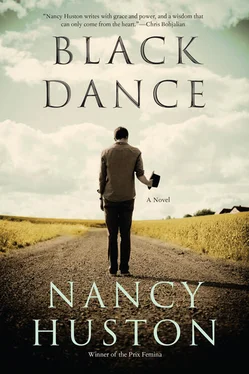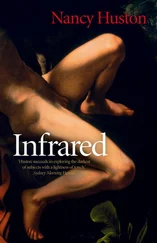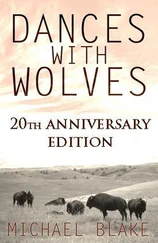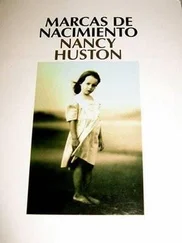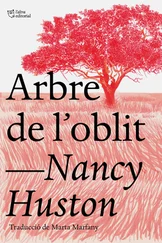“But you’re welcome to join us now, sir,” Neil puts in politely. “If you’ve nothing better to do, that is.”
John MacBride hesitates; the winey red of his cheeks deepens and we divine that his military pulse has begun to race.
“Well, I was on my way to my brother’s wedding, but. . first things first, eh? I’m certain my brother will understand if I change my plans. Though unprepared and unarmed, I have no choice but to throw in my fate with that of Ireland once again. .”
(Milo, this is terrible dialogue. Just terrible. In three decades of working together, I don’t think we’ve ever written anything this bad. Yeah, sure, you’re just kidding, but meanwhile crucial events are unfolding and we need to convey them somehow. .)
“Where can I make myself useful?” MacBride says eagerly.
“At Jacob’s,” says Thom at once. “They need more men over at Jacob’s Biscuit Factory. Only fourteen of the forty who were supposed to be stationed there showed up, all young and sorely lacking in experience. Perhaps you can take charge of the situation there.”
“I most certainly can,” replies MacBride.
Saluting, he turns on his heel and vanishes (thus putting an end to this very weak scene we’ll definitely need to rewrite. .).
AS DAYLIGHT WANES, confusion and uproar in the city of Dublin. Sandbags. Barricades. Dark shadows dashing this way and that. The sound of panting. Ta, ta-da DA, ta, ta-da DA. . Thuds that might be bodies or sandbags. Night falls. The next morning, stationed on the Liffey at the exact spot where Neil cut his post-Monto capers in the opening scene, the British gunboat Helga starts shelling the city. Gulls wheel and scream overhead. The General Post Office is in flames. All Sackville Street is burning. Smoke rises from ruined buildings in the city center. Ta, ta-da DA, ta, ta-da DA . . British soldiers swarm through the streets, overwhelming the rebels by their sheer number. A Sinn Féiner is shot to death by a British sniper crouched on the roof of Trinity. By Tuesday night, the sky over Dublin is a deep red.
Tenement buildings along the Liffey burning. Poor people scurrying out of them, the women clasping bawling babies in their arms, the men in a state of black fury, shaking their fists at the insurgents, screaming till they’re hoarse: We’ve lost everything . .
Neil’s inner voice: How write this? How explain it? What rhythm of syllables printed on the page could convey their We’ve lost everything ? No more proof than this is needed of the absence of God. None of the priests of my childhood ever spoke a word of truth. Darwin alone has told the truth, Darwin alone! Animals, the lot of us, scurrying to survive. From time immemorial, the strong annihilate the weak and the weak do their utmost to grow strong and take over. I myself have just played a role in destroying the lives of the weak, and never will I be punished for it. The evil are no more punished than the good are rewarded, either in this life or in the hereafter, since there is no hereafter. Sorry, Ma. Ah, will you ever be disappointed, all you multitudes of bigotty priggish ladies, whether Catholic or Protestant! I can just see you waking up after death, looking around and saying, Bloody hell, what is this void? You mean there’s no Heaven after all? Are you telling me that for seventy-five years I put up with all those truckloads of shite, for nothing? Afraid so, Ma. Afraid so, O ye prissy ladies who kept your thighs squeezed tight, saving yourselves up for eternal bliss with Jesus after death — no Heaven after all, no just deserts. Even in my father’s law courts people don’t get their just deserts. Justice is no more nor less than a diabolical power game. The truth is the last thing that interests people in a law court! I’ll write this, yes, I shall! Write the novel of the Easter Rising, its leaders aspiring to be great and famous men, its followers aspiring to be men at least, at last, to feel strong, escape from their mothers and sisters, impress their girlfriends and pass on their genes. That’s what politics are about — survival and nothing else. .
(Yeah, well, maybe we could make Neil’s spiel a bit less long-winded. But don’t forget that at this point in his life he’s still green and arrogant, not yet the grandfather you’d one day come to know. .)
A couple of days later. Dark rings under their eyes, Neil and Thom are again posted at the entrance to Saint Stephen’s. Scattered here and there throughout the park are other Sinn Féiners (we recognize Constance Markiewicz in the background). All are discouraged, exhausted, overwhelmed. They haven’t slept for days. In the bushes just behind the cousins, the camera reveals a waif of a rebel, blond and barely pubescent, asleep on the job. .
“Neil! The Brits now outnumber us thirty to one.”
“That’s not the worst of it. The Dubliners themselves are against us. How can we free Dublin against its will?”
“Ah, passivity! The greatest force in human history.”
“People need to eat, Thom. They care about sitting down to meals together. Did you hear them scream at us? Never shall I forget the despair in their eyes. Thom, I’ve been thinking. . Aargh. .!”
They’ve just been grabbed from behind by a group of British soldiers. Their weapons are torn away from them. Starting out of sleep, the blond adolescent freezes in fear and glues his stomach to the ground. As one soldier holds each of the cousins, bending his right arm forcibly at the elbow and twisting it up behind his back, another rummages through their pockets and under their clothes. Incongruously, Neil’s brain flashes to that dreadful moment in the Talbot Street brothel when he’d lost sight of his own hands. The blond kid watches from his hidden vantage point as Thom puts up a struggle, swearing at the soldiers and taunting them with Joycean rhyme and humor, calling them twitbrits and clitwits . The man holding him shoots him at point-blank and he collapses on the sidewalk, his corpse partly on Neil’s feet.
Stop sound track. White silence in Neil’s brain. Face white, too.
The muzzle of a gun in his back, too.
“What’s your name, you little bugger?”
He stutters his name in a white whisper and adds: “I’m a lawyer and my father’s a magistrate, you can’t. .”
“Feck the law,” the soldier interrupts him. “You’re next on the sidewalk unless you give us a good reason not to put you there. Where are your leaders, baby boy? Where are your feckin’ leaders, you little knock-kneed patriot? Give us the names and whereabouts of your leaders. A nice, big name to make us happy.”
Numbness and strangeness. Paralysis of Neil Kerrigan’s facial muscles. Sense of unreality, of theater. Time slows, seems to stop. Neil stares stupidly into the face of the soldier shouting at him, a man his age. Sees his fear. Shares the man’s fear and tension, his rage at being tense and fearful. Weirdly, it’s as if this British soldier were his cousin — as if, at the instant of his death, Thom’s soul had slithered up into the enemy’s body and were now staring out at him through the enemy’s eyes and trying to warn him: Careful, Neil. Take it easy, man. Careful, now. Everything’s critical here.
The name slips out: “MacBride.”
Synapses are exploding like slow fireworks in his brain. Mac-Bride out of the way. . Maud Gonne would be free. . I’d be doing Yeats a favor. . eliminating the last impediment to their marriage. . He’d be grateful. . and want to do me a favor in turn. . help me find a publisher for my novel. .
“What?”
“Major John MacBride,” Neil repeats, his voice white.
The blond kid in the bushes is still there. Listening. Quaking with fear and listening.
Читать дальше
